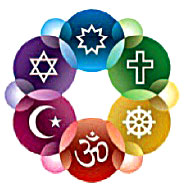 By: Paul P. Jesep*/TRT Columnist—
By: Paul P. Jesep*/TRT Columnist—
Justin Tanis (http://goo.gl/Jbkahs), Managing Director at the Center for Lesbian and Gay Studies in Religion and Ministry (http://goo.gl/IBWXqy), established at the Pacific School of Religion (http://goo.gl/TnUYXz) for gender, religion, and sexuality, answered twelve questions submitted by The Rainbow Times after the U.S. Supreme Court’s decision on marriage equality (http://goo.gl/XBEVLN). The answers deal with marriage equality and religious liberty from a professional standpoint, in this last part series TRT feature story.
Q: If you were to address the Southern Baptist Convention or students at Liberty University what would you share?
A: 1 John 4:16 (https://goo.gl/fZ3nuE)—New Revised Standard Version (NRSV): “So we have known and believe the love that God has for us. God is love, and those who abide in love abide in God, and God abides in them.”
Love is incredibly powerful. LGBTQ people are getting married because they want to form loving partnerships. People of faith are so busy making laundry lists of sex acts that are not allowed, of saying who can and cannot have sex with each other, and teaching kids that sex is to be avoided at all costs. Yet, we are failing to even discuss the quality of that sexuality and the way it contributes to or detracts from the wholeness that God wants for us. What if God created many ways of loving and encouraged us to express love by treating our neighbors, as we want to be treated?
I would encourage them not to be afraid and recognize they are truly not being harmed in any way by others living out what is right for them. When a transgender person lives an authentic life, expressing the gender that is true and right for them, that doesn’t hinder others from living their lives according to a different path. When two people connect—regardless of their genders—and that connection makes their lives stronger, then we should recognize that.
Q: If you could to talk to all Americans for 15 minutes what would you say?
A: There are many different faiths and ways of seeing the world. When we are all able to worship freely, to engage in the practices of our tradition, and to believe as we wish to believe, we are all stronger. When individuals try to impose their own beliefs on others, it weakens all of us and our system of government which does not favor religion over non-religion or one religion over the others. Freedom means everyone must be free. We deeply benefit from the incredible diversity of belief.
There are people using a claim that their religious freedom is being damaged while they seek to impose personal beliefs on others. They are using the term “religious liberty” but what they are seeking is a world in which some people—particularly same sex couples—are limited in their choices of shops, their access to government services, and so on. They are essentially saying that in order to be free to practice their religion, our government must allow a world in which LGBTQ people have fewer freedoms. This will accommodate a narrow branch of conservative
Christians, but it imposes a harsh burden on others. That is not acceptable nor an honest or accurate definition of religious freedom. We are not free to impose our faith, only to practice it.
The New Testament also has some wonderful stories that set aside the idea that coming in contact with something you think is unclean will rub off on you. Jesus is accused of not following the hand washing practices of his faith (Luke 11:37-39 – https://goo.gl/Xnrqp7, Mark 7:1-3 – https://goo.gl/ijUaQ7, Matthew 15:2 – https://goo.gl/hLXPj6), Peter wrestled with the image of impure animals (Acts 10:1-11:18), and so on. Providing a marriage license for someone, baking them a cake, or other actions do not impart “uncleanness” on the other person in Christian tradition. This is not something the Bible says you will be judged for. Claiming Christian faith requires discrimination against LGBTQ people is not a claim supported by the New Testament.
The Bible is full of examples emphasizing hospitality and the need to treat others, even strangers, with care and compassion. Jesus is clear that we are not to judge and we are to treat others as our neighbors. Those of us who follow Christ would be well advised to focus on those priorities.
*Paul is a corporate chaplain, seminary trained priest, and attorney in greater Albany, NY. Reach him through www.CorporateChaplaincy.biz.






